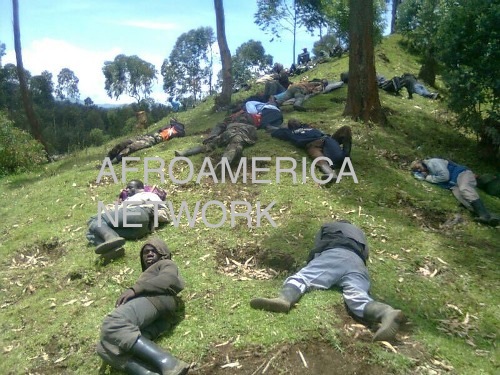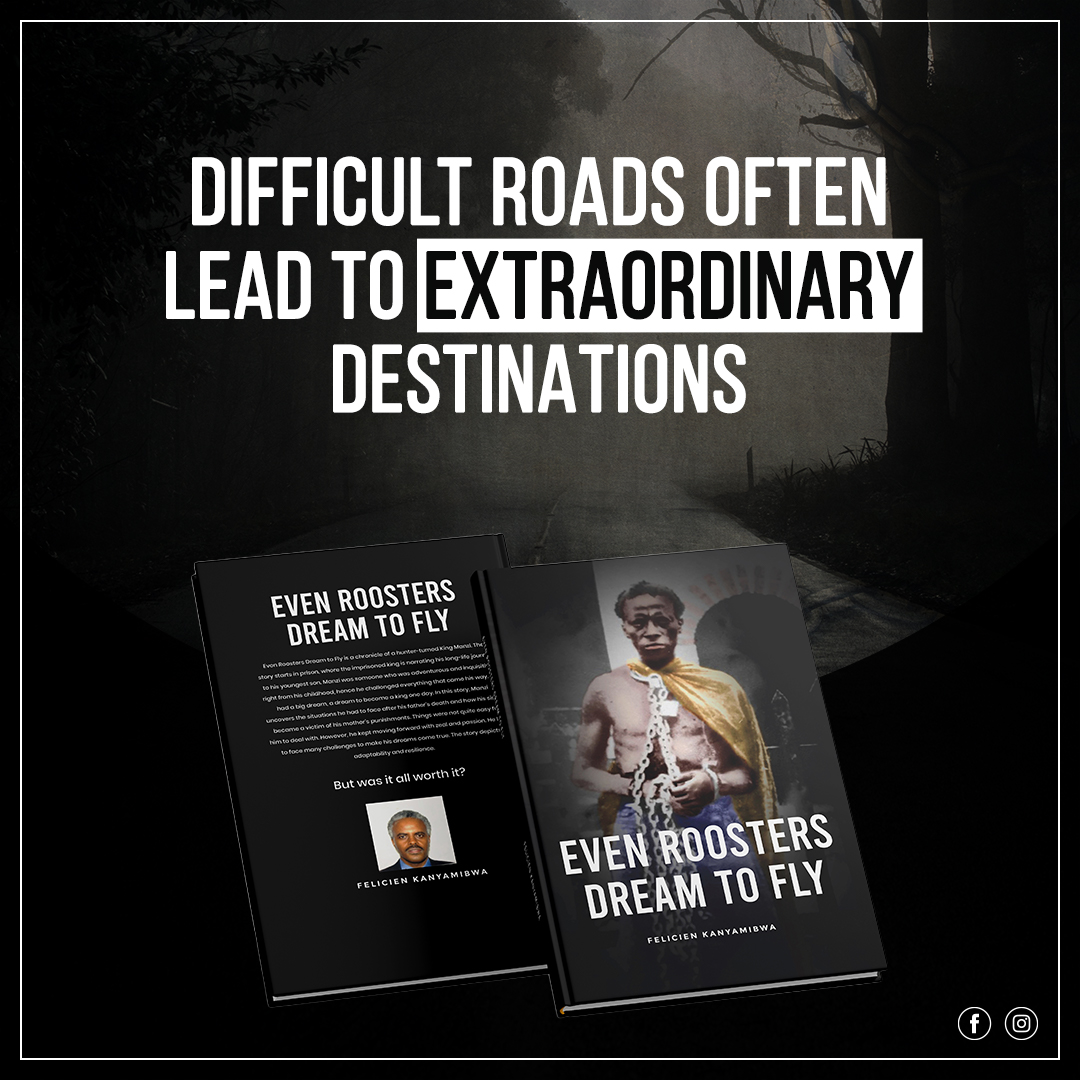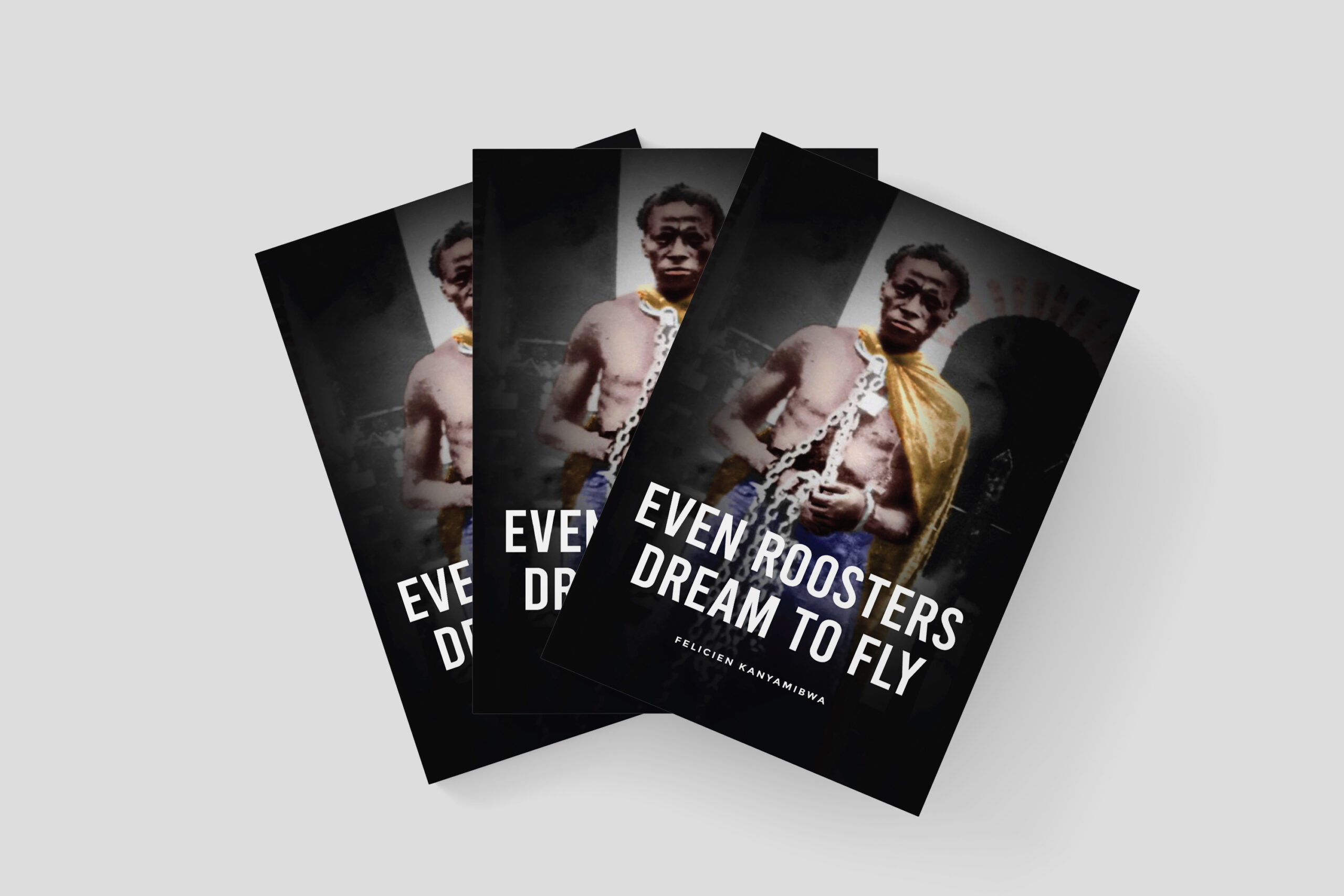The Black History Month: A reflection on the dilemma of Black tyrants in Africa.
Felicien Kanyamibwa, PhD with the edits from David O’Brian, AfroAmerica Network, Baltimore, MD, March 1, 2007.
Recently, I read an article from Mr. Servilien Sebasoni, the spokesperson of the ruling RPF, about the dilemma of a liberator, comparing Rwandan General Kagame to King Agamemnon of the Greek mythology. The article reminded me of a quote I read long ago. The quote of Gandhi said: “When I despair, I remember that all through history the way of truth and love has always won. There have been tyrants and murderers and for a time they seem invincible, but in the end, they always fall — think of it, always,” Mohandas Karamchand Gandhi, An Autobiography: The Story of My Experiments With Truth (1929).
Another Black History Month has come to an end. As I write this article, I think about Mr Sebasoni’s article and Gandhi’s statement. I read the quote just before the month started and reread the quote as I waited for a much anticipated conference by the grand son of Gandhi, Rajmohan Gandhi, an honorary visiting professor at the University of Illinois at Urbana-Champaign, at the Stanford University Philippines Conference Room Encina Hall on February 26, 2007. I realized know how strangely the quote has been on my mind for the entire February 2007 month. As the quote lingered on my mind, my thoughts wandered back and forth to Africa. I wondered how many of the 61 countries and territories of the world’s second-largest and second most-populous continent are led by tyrants and murderers. I wondered how many of those tyrants and murderers think they are and seem invincible. I thought on how many of these tyrants would like to wake up in the morning and find that they have become genuine leaders of nations.
In fact, no matter what they want, all tyrants know that they are buying time, prisoners of their ego, their entourage, or forces beyond their control. Tyrants know that, eventually, change will come. This ineluctable change has been predicted with quasi-certitude, whether in Africa, Europe, or ancients civilizations. As Alexander Fraser Tytler (1742-1813) said, “The average age of the world’s great civilizations has been 200 years. These nations have progressed through this sequence:
from bondage to spiritual faith
from spiritual faith to great courage
from courage to liberty
from liberty to abundance
from abundance to selfishness
from selfishness to complacency
from complacency to apathy
from apathy to dependency
from dependency back to bondage.”
Scholars have argued whether the quote were genuine, but have agreed on its frightening exactitude.
For the past years, I have often written on Rwanda. Not only is Rwanda a perfect model for the quote, but also because I believe that if Rwanda can make it and break the cycle of violence, any country can make it. Its history can very well be embodied in Tytler’s quote. Aristocratic Tutsis held Hutu and Tutsis of lower classes in bondage for hundreds of years. To break the bondage, Hutu and these Tutsis entered the Catholic Church, and eventually became courageous enough to overthrow the Tutsi monarchy to gain independence. Followed years of social and economical development, then ensued corruption, that led to complacency and apathy and dependency to Hutu regimes that was not able to face new challenges. Soon enough, Hutus and those lower class Tutsis were back into bondage under RPF regime ruled by descendent of Tutsis aristocrats. Recently, churches have been mushrooming all over Rwanda and in the diaspora, signaling the spiritual faith phase. Walk down the streets of Kigali and see the number of street Christian preachers to see how Rwandans have embraced the spiritual resurgence. Whether this spiritual revival will be followed by great courage is a matter of time, because, tyranny always stirs up courage in people.
During the Black History month, people of African descent held several events all over the United States: to reflect, to commemorate, to make new resolutions, to celebrate, and, most importantly, to look ahead. As I attended a few of them and thought about looking ahead, I remembered a quote by arguably the most important business person, philanthropist, and humanitarian Warren Buffet: “ In the business world, the rearview mirror is always clearer than the windshield,” I would replace “business” by “political” and find the quote perfectly matching my anxieties about the future for which we set goals. As a Black person living in America, I know that in our own moments, we think about our African brothers, breaking their back under the yoke of tyrants and wonder whether we are better off living in America and mind our business or serve as instrument of change in our motherland Africa.
Whenever I think about Rwanda, I think about the Rwandan tyrant General Kagame. I wondered whether he ever read Gandhi or Warren Buffet, two different individuals, but who, each in their own ways, believed that one must have the courage or the intelligence to look back, to reflect on history and see their own reflection so that they can have a better glimpse into the future. The fate of a tyrant of yesterday should be a lesson for tyrants of today. No tyrants become tyrants overnight: they grow out of complacency, frustration, anger, and perhaps revenge, but they have time to think and change course.
In this Black History Month, I thought a lot about African tyrants and what I would do if I were them. This lead me back to Mr. Sebasoni’s discourse on Agamemnon’s dilemma. Whether Agamemnon was right in sacrificing Iphigeneia is a subject of debate. What people agree on is that the sacrifice was unnecessary because at the end both the Acheans and the Troyens were almost exterminated, after the death of Achilles and Hector, the siege of Troy for 10 years, the Trojan horse ploy, the desecrations of Troy temples by Achaeans after mercilessly slaughtering the Trojans and finally being themselves exterminated by Trojan gods. What did the Acheans gain: nothing.
It is the same in Rwanda. Mr. Sebasoni’s article implies that Paul Kagame had to sacrifice Tutsis to liberate them. Paul Kagame sacrificed Tutsis, conquered Kigali after a siege of 4 years, the death of General Rwigema and General Habyarimana, the CND (Rwandan parliament house) horse ploy, and the desecrations of Catholic churches. What did Tutsis of the RPF and their allies gain? Mr. Sebasoni may try to give an answer. The beauty of the Greek mythologies is that it is full of dilemma for tyrants that could be solved if tyrants, for once, could listen to the people around them. Creon who sacrificed Antigone, daughter of Oedipus is a good example. Antigone’s two brothers Eteocles and Polynices were clearly fools. They could have talked and ruled the Kingdom alternatively forever. But instead, they killed each other and Creon benefited from their foolishness. However, instead of agreeing that Antigone is but a human, full of feeling and compassion for her dead brother, Creon, turned into tyrant, enacted inhumane decree. He did not even want to listen to Tiresias, the blind prophet. What did Creon, the uncle of Antigone gain: his entire family was destroyed and the man was doomed. Here again, Rwanda could learn a lesson: Tutsis and Hutu refused to negotiate a peaceful solution, massacred each other, and left a vacuum filled by General Kagame who managed to take power and rule over them unchallenged. Once in power, General Kagame, instead of learning from the fate of Creon and the Acheans, refused and still does not want to listen, perhaps because Rwandan as Greek tyrants suffer from the Cassandra Syndrome.
To go back to my tenet, what would Kagame do? I propose he learns from the Greek greatest kings. Great Greek Kings proposed peace and negotiation to seemingly insolvable dilemma.
Let us take Priam, the King of Troy and father of Hector, for example. Achilles killed his son Hector, desecrated his body, and kept the corpse in front of his tent. Because there was no other ways to get back the body and give it a proper, heroic burial, Priam entered the Acheans’ camp and tearfully pleaded with Achilles. Instead of listening to his hatred for Achilles, Priam pleaded with Achilles and left him witha dilemma: to show his nobility by honoring and giving back the body or to show how cruel and low he is by refusing to talk to Priam, his war enemy. Priam got both the body and respect from Achilles.
Still the most interesting story of the Greek mythology is that of Odysseus in Iliad and Odyssey. It took Odysseus, king of Ithaca, 20 years to reach Ithaca. With the help of Athena, goddess of civilization, including wisdom and civilized war, his swineherd Eumaeus, and his son Telemachus, he was able to get rid of Penelope suitors and the corrupt court by killing them, except Medon and Phemius who had shown kindness to Penelope. Then, Athena ordered Odysseus to negotiate and make peace with the suitors’ families. Let us remember that Athena meant civilization. Hence the act of negotiation and peace making is civilization.
The stories of the great kings and generals of the Greek mythology teach us that despite the feelings towards our war enemies, there must be somewhere a place of peace and negotiation. After all, we all are only mistaken humans full of frailty and defects, but also capable of humanity. In the end, kings and tyrants come and go, wars are fought, won or lost, but only humanity stays. Although both cruelty and humanity are remembered, only humanity leaves a legacy that perpetuates humankind. No tyrant has left a legacy of humanity. But a tyrant can choose to cease to become a tyrant. Tyrants may choose to become human by extending a hand of peace to their opponents. By the simple gesture, they will have solved the moral dilemma facing the entire humanity and hence planted seeds to perpetuate the legacy of humankind.
Between Rwandan General Paul Kagame and South African hero Nelson Mandela a parallel may be drawn, but their legacy will diverge sharply, and if one is left with a choice, the choice may be obvious. Both are famous. Both spent nearly 30 years cut from their motherland (27 years imprisonment for Mandela and 30 years exile for Paul Kagame). Both led an armed struggle against regimes they perceived as responsible for their plight. Both won their struggle and led the country. There is no doubt that Apartheid was the worst regime that ever existed in Africa. Yet, after ANC won, Nelson Mandela understood that repression and persecution, isolation, and casting away his former enemies opened a wide door that lead to perdition. He understood that leadership and humanity required from him only one thing: an open hand of peace, negotiation, and reconciliation. Only then was he able to show that he was a leader and a victor in battle, but a better leader and victor in peace. A man of Humanity, Mandela is certainly admired for having overthrown the Apartheid, but he is revered for what he did after and how he managed victory.
When a Hindu man who had killed a Muslim young boy after Muslims had killed his own approached Gandhi on his fasting bed, Gandhi never condemned him, but gave him a challenge: to adopt a Muslim orphan, and raise him, not as a Hindu, but as a Muslim. That, I believe, is the best atonement that the Hindu man could make. And if he did raise the kid, I am sure he died in peace, knowing that he paid for his crimes, he did good, lived a life free of pain and remorse, and he left a legacy of harmony among people, who otherwise were bent to exterminating each other.
That is the challenge we, at AfroAmerica Network, put forward in front of General Kagame and the leaders of Rwanda today, as we celebrate the end of 2007 Black History Month: to make sure that in 2008 we will be celebrating 2008 Black History Month in a reconciled Rwanda. This would be a wonderful gift for Blacks around the World, and for the humankind everywhere.
Felicien Kanyamibwa, PhD, MqBA
©AfroAmerica Network, March 2007.
For contact, please e-mail us: mail@afroamerica.net
Please visit us at: http://www.afroamerica.net
AfroAmerica Network is owned by AroniSoft LLC, a Delaware company. Please read the copyright and privacy notice at http://www.afroamerica.net/aronisoft.html









